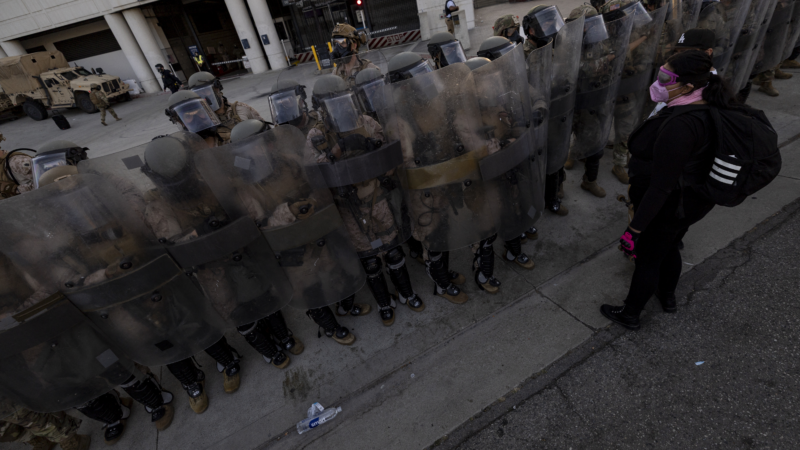Inflation is cooling — but Trump’s tariffs could upend things
Inflation eased last month — but the fallout from President Trump’s trade war threatens to put upward pressure on prices in the month to come.
Consumer prices in March were up 2.4% from a year ago, according to a report Thursday from the Labor Department. The price index actually fell slightly between February and March, as gasoline prices dropped more than 6%. Airline tickets and used cars also got cheaper during the month, although the price of new cars and clothing went up.
Egg prices continued to climb in March, thanks to the lingering effects of avian flu which has reduced the nation’s flock of egg-laying chickens. With Easter just over a week away, egg prices are up more than 60% from this time last year.
Stripping out volatile food and energy prices, “core” inflation over the last 12 months was 2.8%. That’s the smallest annual increase in four years.
But tariffs could upend things
Progress on inflation could stall, however, as a result of the president’s trade war.
“That was nice, but don’t get used to it,” said Greg McBride, chief financial analyst at Bankrate, about the better-than-expected inflation reading for March. “Consumers, businesses and even the Federal Reserve are bracing for higher prices in the months ahead.”
Trump suspended many of his new tariffs on Wednesday, but he left in place a 10% tax on nearly everything the U.S. imports from other countries. Goods from China face a much higher tariff of 145%, which could lead to significantly higher prices for clothing, toys and other goods.
The uncertainty surrounding the effects of tariffs — and the prospect of higher prices — could make it harder for the Federal Reserve to cut interest rates this year. Fed policymakers cut their benchmark rate by a full percentage point last year.
Zohran Mamdani sworn in as New York City mayor, capping historic rise
Mayor Zohran Mamdani took the oath of office in New York City after midnight Thursday. The city's first Muslim mayor, a member of the Democratic Socialists of America, has promised to focus on affordability and fairness.
Rising from the ashes, a symbol of hope at the Rose Parade
Survivors of the Eaton and Palisades Fires find healing and community working on a Rose Parade float to honor the lives and communities lost in last year's wildfires.
The history behind the NYC subway station chosen for Mamdani’s swearing-in
The city shut down the station in 1945 on New Year's Eve. Eighty years later, it's a symbolic venue choice for the incoming mayor's private swearing-in ceremony.
U.S. military strikes 5 more alleged drug boats, killing 8
The U.S. military says it struck five alleged drug-smuggling boats over two days. The attacks killed eight people, while others jumped overboard and may have survived. U.S. Southern Command did not reveal where the attacks occurred.
Capitol riot ‘does not happen’ without Trump, Jack Smith told Congress
Former special counsel Jack Smith also described President Trump as the "most culpable and most responsible person" in the criminal conspiracy to overturn the 2020 election results, according to a transcript of Smith's closed-door interview with the House Judiciary Committee.
Trump will drop push for National Guard deployments in Chicago, LA and Portland, Ore.
Courts blocked troops from deploying in Chicago and Portland, Ore., and the Los Angeles deployment effectively ended after a judge blocked it earlier this month.







